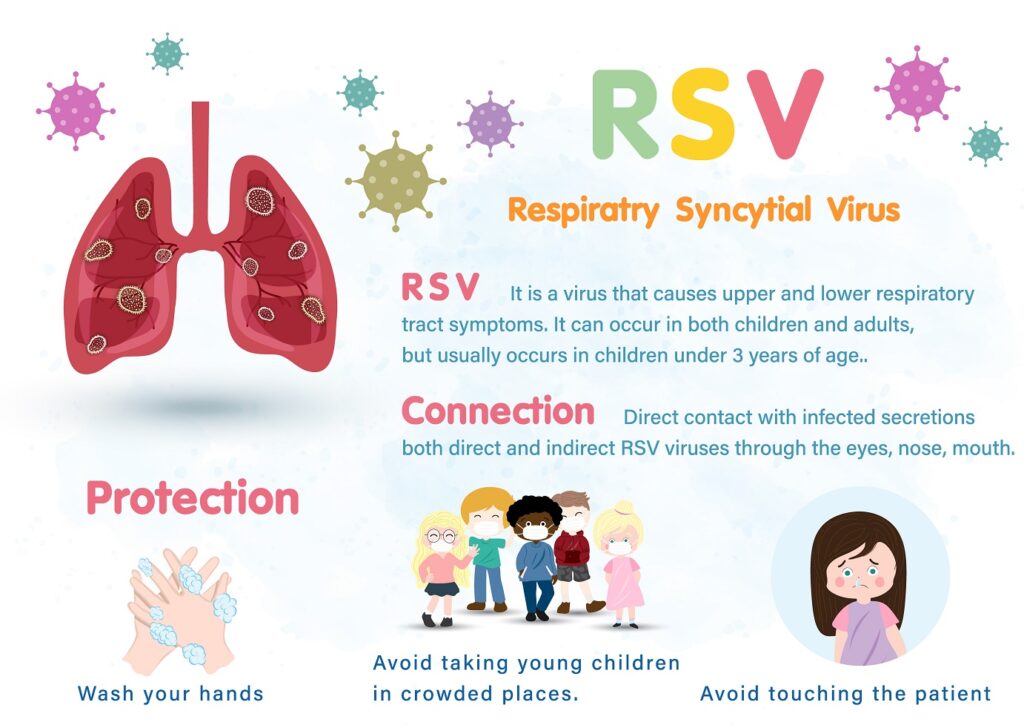Knowing your child has a respiratory syncytial virus (RSV) infection can sound scary. You’ve probably heard the horror stories about this disease—stories of babies struggling to breathe and running in skyrocketing temperatures. But in reality, most symptoms are not typical of the infection. And even by the age of 2, most children will have been exposed to the virus, and it’s entirely possible that you didn’t even know it was it.
Not all symptoms are the same.
The RSV season usually runs from mid-September to April, with a peak from late December to mid-February. Children are usually exposed to the virus either through direct contact with respiratory secretions or by touching toys or other objects that a sick child has touched.

Treatment and prevention of RSV infection
Symptoms often appear three to five days after exposure to RSV. More often, a child who is infected with RSV gets sick with a common cold or develops very mild symptoms — say, a runny nose or the occasional cough — that can easily be treated at home.
Other possible symptoms include a mild fever, sore throat, headache, and irritability. Most of the time, a doctor will diagnose an RSV infection based on these symptoms alone, although it is possible to detect the virus in nasal secretions.
Toddlers and babies
Babies and children under the age of 2 are most at risk for the more severe (and known) symptoms caused by RSV, such as very high fever, sleep apnea, and bronchiolitis — an infection of the small airways that lead to the lungs, called bronchioles. When the bronchioles become inflamed, they swell and become clogged with mucus, making it difficult for the child to breathe.
Treatment and prevention of RSV infection
If your child gets an RSV infection, his symptoms may last up to three weeks. How your pediatrician chooses to treat them will depend largely on the child’s age and how severe the symptoms are.
Most likely, if your child is over the age of 2 and has mild symptoms, they won’t need anything more than medicine for pain and fever and maybe something for a cough. Saline inhalations can help relieve a stuffy nose.
Only way to protect RSV infection is the same way you would use to prevent any other viral illness: frequent hand washing by all family members. It’s also a good idea to prevent children from sharing glasses and utensils.

